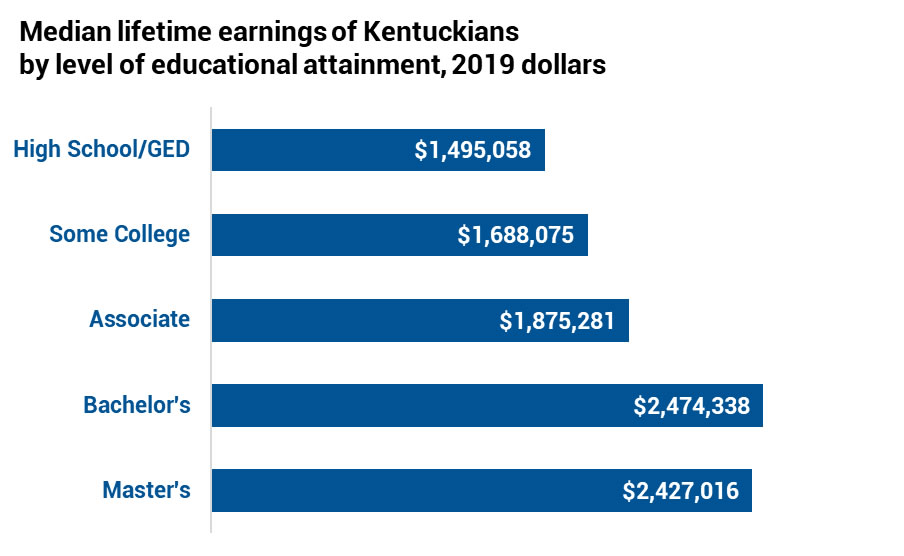New CPE research highlights the financial benefits of college degrees
January 28, 2021

New research from the Kentucky Council on Postsecondary Education shows that college degrees and other credentials provide a substantial boost to lifetime earnings, often totaling upwards of $1 million or more.
The findings are part of a new series of research briefs on education and median lifetime earnings in Kentucky that CPE plans to release over the next several weeks. The first brief, published today, reveals that higher levels of educational attainment allow workers to reap significantly greater financial rewards over the course of a career.
For example, Kentuckians with a terminal degree may expect to earn $2 million more than workers with only a high school diploma. A four-year bachelor's degree may result in close to $1 million more in work-life earnings than an education that ends at high school.
Even without a degree, having some postsecondary education adds nearly $200,000 to the median lifetime earnings of high school graduates. Earning an associate degree provides another bump of nearly $200,000.

"Higher education matters for many reasons, and the financial benefits are life-changing," said CPE President Aaron Thompson. "In almost every field of work, college paves the way for better career options, faster advancement and higher pay. It also provides workers with greater economic security and more opportunities to create intergenerational wealth. Every Kentuckian should consider these advantages when planning for college and beyond."
Overall, Kentuckians with a bachelor's degree earned a median 32% more than those with an associate degree and nearly 66% more than those with only a high school diploma. Workers with a doctoral or professional degrees realized the largest gains with median lifetime earnings totaling more than $3.6 million – nearly double the earnings of those with an associate degree.
Even though the overall benefits on lifetime earnings are clear, CPE's research also identified sizable disparities based on gender, race and ethnicity. CPE will explore those findings in the two remaining briefs in this series over the coming weeks.
"This data provides valuable insights for policy leaders in both education and workforce development," said Jie "Grace" Dai, CPE's senior associate for data and advanced analytics and one of the lead authors of the series. "We also hope students and families will use these briefs when plotting out a course for college. Those decisions have a powerful impact over the breadth of a lifetime, and we want to empower students with the best information possible."
The report can be accessed on CPE's website at http://cpe.ky.gov/data/publications.html.
Last Updated: 7/20/2021
